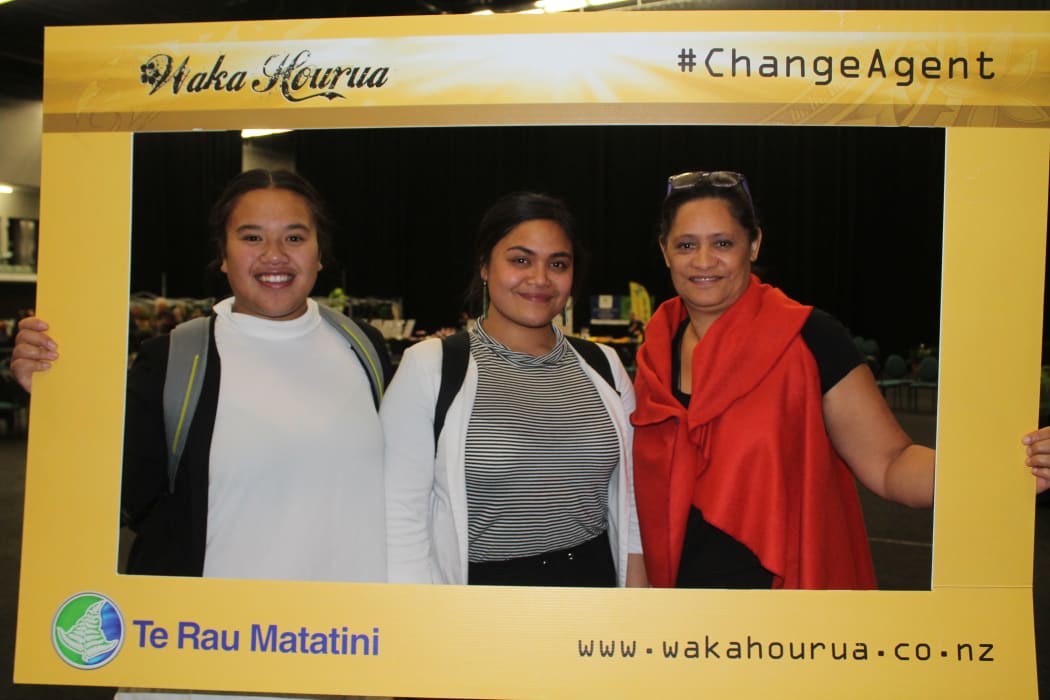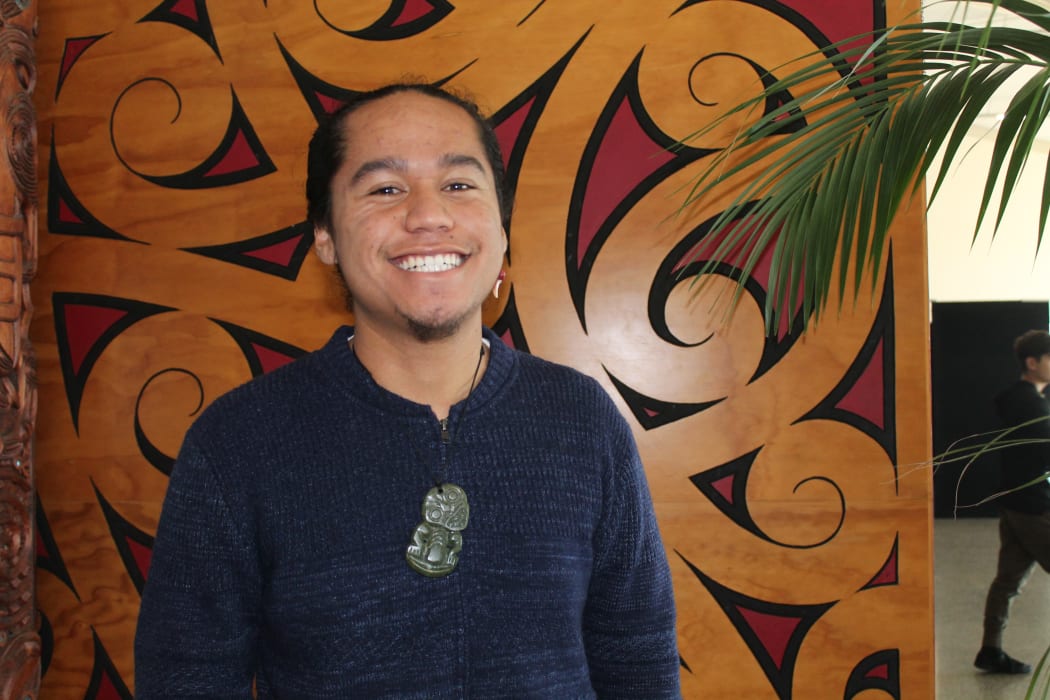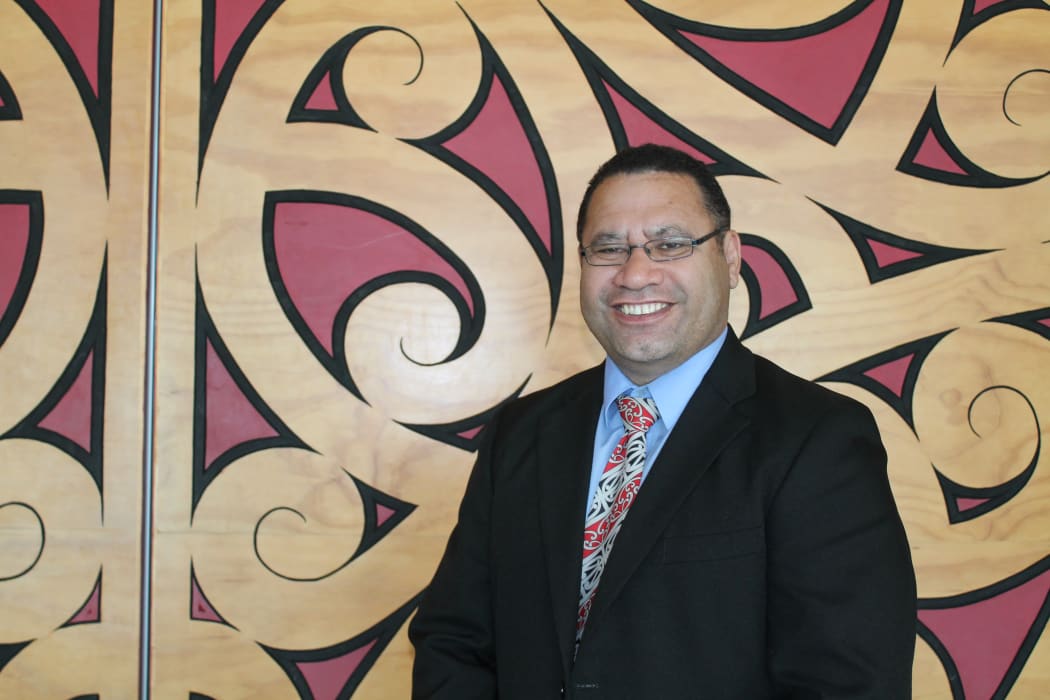In part three of Turning the Tide on Suicide young people talk about their work in suicide prevention.

Rongomaitawhiri Ah-Ching, Mauriora Tawaroa Takiari and Mapihi Raharuhi. Photo: RNZ/Justine Murray
A For the Youth, By the Youth approach is how Mauriora Tawaroa Takiari and Rongomaiwhiri Ah-Ching see their work in youth suicide prevention. Both girls attend University and work as Youth Facilitators of Kimiora Trust, they are also involved in the Rangatahi work stream for Waka Hourua of Te Rau Matatini.
“We want to teach them signs and signals of suicide prevention just so they have a little handful of knowledge in their back pocket”
Last year Mauriora and Rongomaitawhiri organised a Youth suicide prevention hui held at Rātana Pa.
Mapihi Raharuhi is the Project leader of Waka Hourua. The programme works alongside Māori and Pacifica Communities.
“The living space is a really important place and that’s the place where Waka Hourua and communities come together to discuss how we move forward, how we respond effectively to this kaupapa of sucide prevention.”

Ezekiel Raui Photo: RNZ/Justine Murray
Instead of bridging the gap between the rich and the poor, 18 year old Ezekiel Raui says it needs to be between the parent and the child.
Ezekiel works closely with The Key to Life Charitable Trust motivational speaker, Mike King. It was in the Far North that King first met the straight talking teenager from Nga Puhi and the Cook Islands, King said it was Ezekiel that made him change his view of the world.
As a former student of Taipa College Ezekiel confronted suicide issues in his community by taking a proactive stance, a result that lead to the creation of the peer support programme Tu Kotahi.
Although he has since left school and is now studying at Massey University in Auckland, Ezekiel travels the country talking to and inspiring young people.
He talks about the pitfalls of social media.
“This is a new world in the sense that social media to a lot of us as rangatahi (youth) is almost a reality…and so how many likes we got on Facebook and those things like Instagram and Twitter is validation, it's almost more important to us than having a conversation face to face”
On June 26, Ezekiel won the young achiever of the year award at the Matariki awards hosed by Māori Television and Te Puni Kokiri.

Project Leader, Michael Naera Photo: RNZ/Justine Murray
Michael Naera has a keen sense of humour, as one of the key organisers and a Emcee during the suicide prevention conferences, he often has a few funny quips when he talks to his audience. But behind the smile is a personal story, one that Michael has shared of dealing with depression in his twenties.
It was the support of his family that lead to his wellness.
Today, Michael is Project Leader of Kia Piki te Ora, the Suicide Prevention service at Te Rūnanga o Ngāti Pikiao.
Mr Naera and his team organised Turamarama ki te Ora in 2015, the three day conference looked at suicide prevention that starts from conception.
Turamarama Ki Te Ora set down that foundation to address the issue from a wider Māori focus, but some feedback was received about not having enough of a youth presence or voice. This set the wheels in motion to host the World Youth Summit and the World Indigenous Conference held in June this year.
The event was attended by academics, social and health workers and families who had been affected by suicide.
A key milestone was achieved.
“Sir Mason Durie developed the Turamarama Declaration…it is made up of 13 clauses, it involves looking at us personally as indigenous people…and looking at the government’s role. It was put on the table in front of 500 and it was accepted by the floor. So the pathway forward for us now is to take it the United Nations Indigenous Forum.
Michael talks about outcomes of the conference.
Here are a number of sites with information on ways to get help.
If you need to talk to someone about your own mental health, try these helplines. If it is an emergency, call 111.
Lifeline - 0800 543 354
Depression Helpline - 0800 111 757
Healthline - 0800 611 116
Suicide Crisis Helpline (aimed at those in distress, or those who are concerned about the wellbeing of someone else) - 0508 828 865 (0508 TAUTOKO)
Youthline - 0800 376 633, free text 234 or email talk@youthline.co.nz

